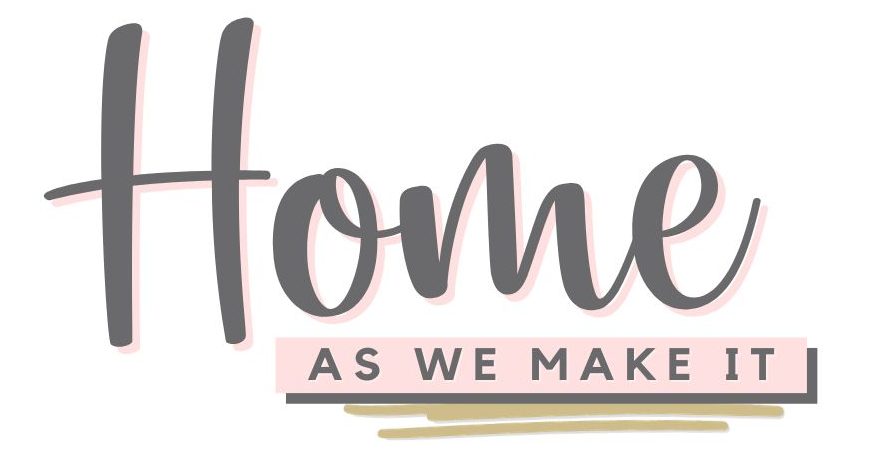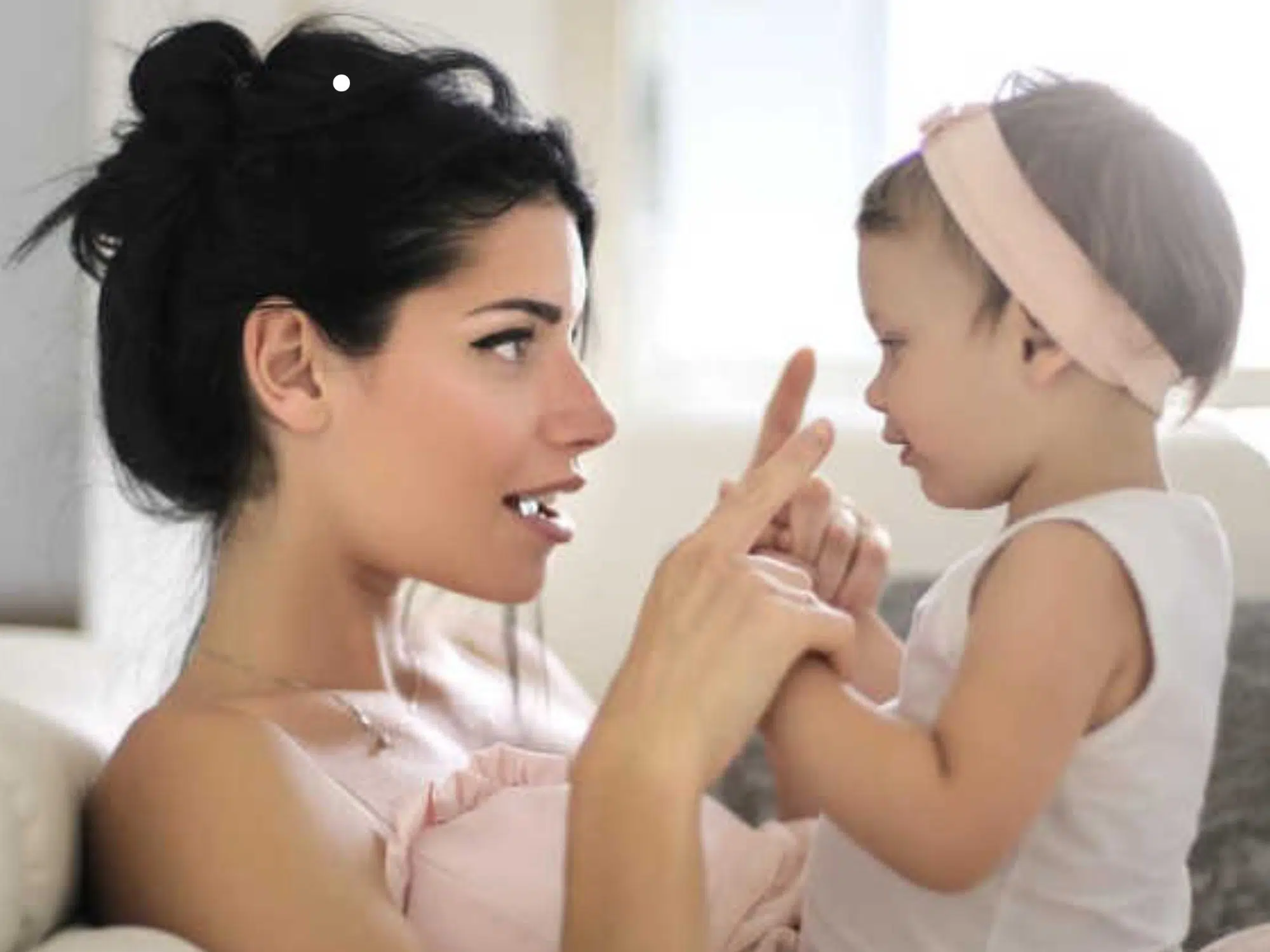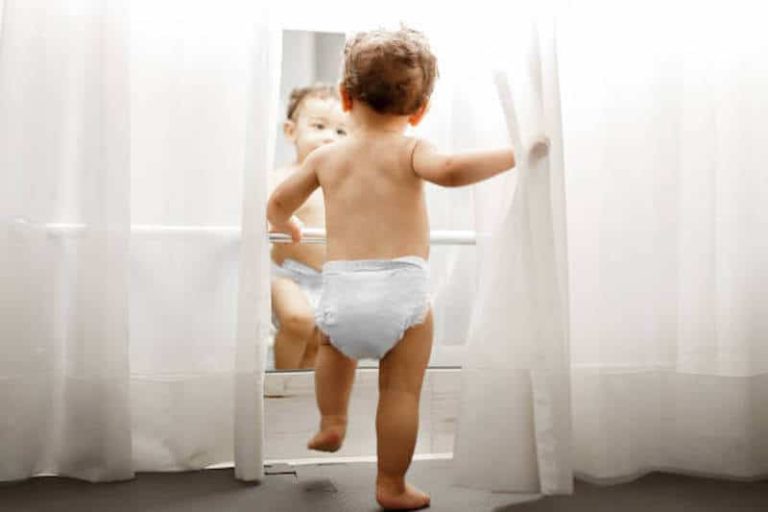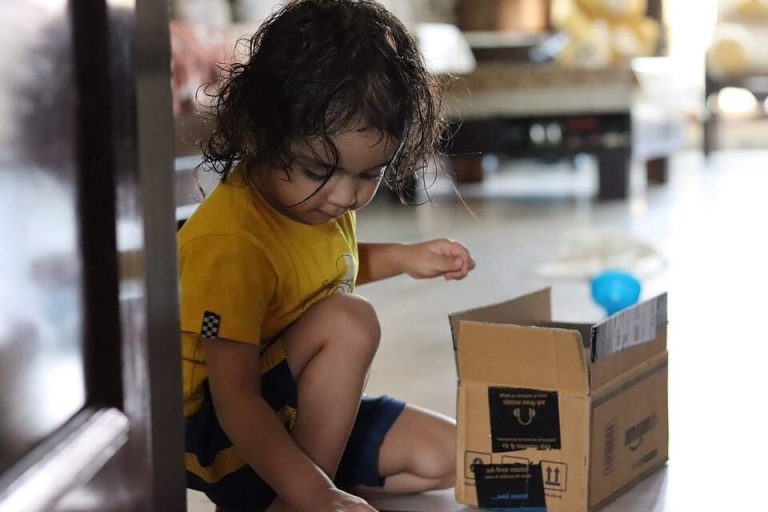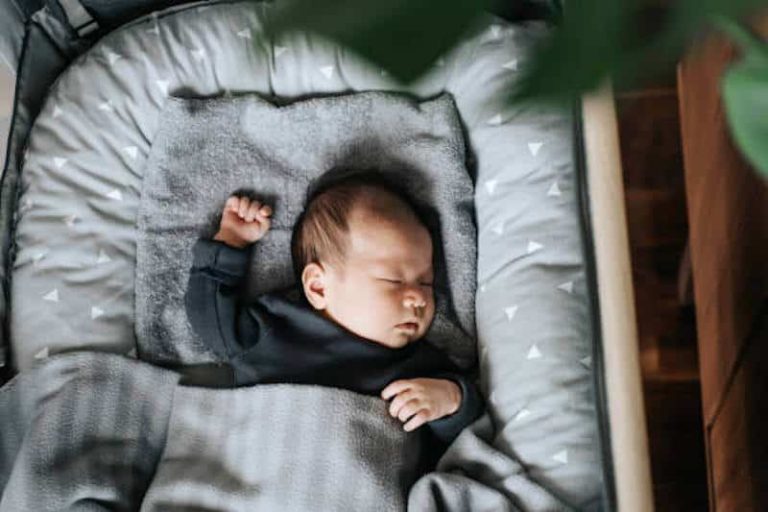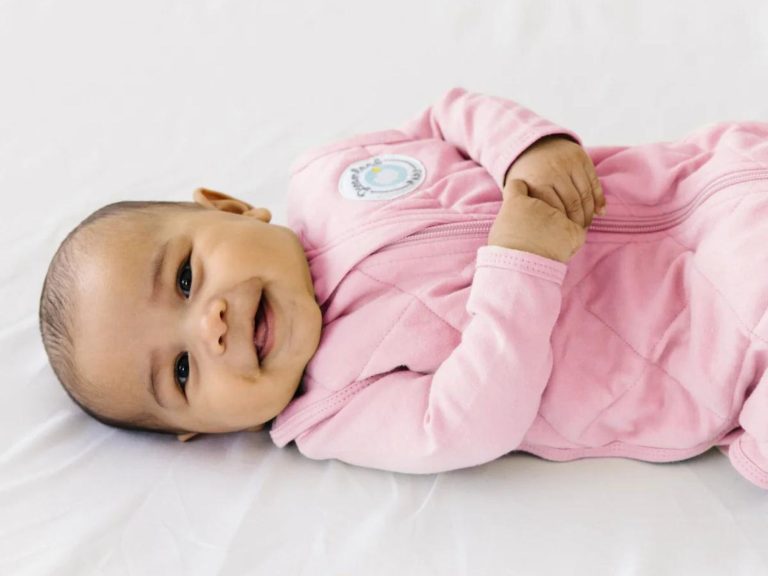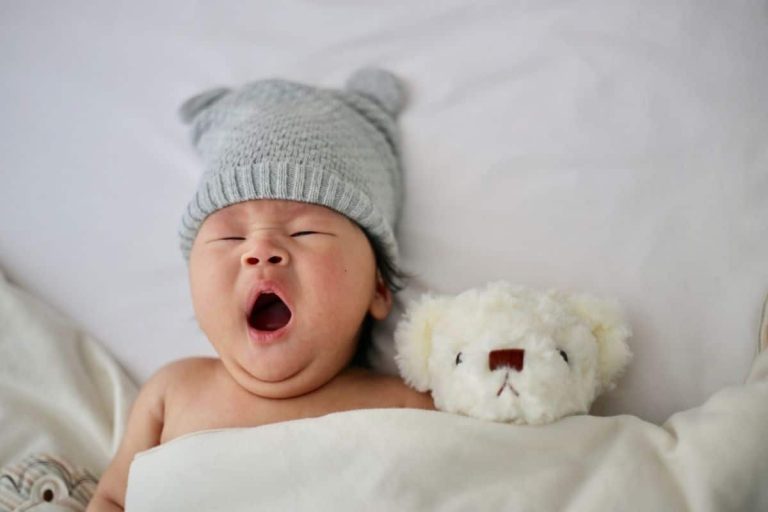11 Months Baby Development. What You Need To Know
Are you planning your baby’s first birthday? I know this is an exciting event but there are still a few things you need to know about your 11 months baby development.
Looking for 10 month old fevelopment ↠10-month-old baby development
Note: This post may contain affiliate links, which means if you buy from my link I might make a small commission. This does not affect the price you pay. See the full affiliate disclosure here.
What to expect from your 11 months baby development
Physical growth
Around their first birthday, your baby should have tripled their birth weight. Still, you should have noticed that their growth speed has slowed down significantly.
Furthermore, they are probably not the chubby and fluffy baby that they used to be. Instead, they are growing taller and slender and start to resemble more of a toddler than a baby.
This is mainly because they are a lot more active, crawling around, and maybe even walking. They are burning a lot more calories now that they are not just sleeping and lying around all day.
In terms of numbers, at 11 months of baby development, girls usually weigh between 6.9-11.3 kg (15.2-24.9 lbs) and are 66 to 79 cm (26 to 31 in) tall. Boys, on the other hand, range between 7.4-12 kg (16.3-26.5 lbs) and 67-81 cm (26.4-31.9 in).
Sleep
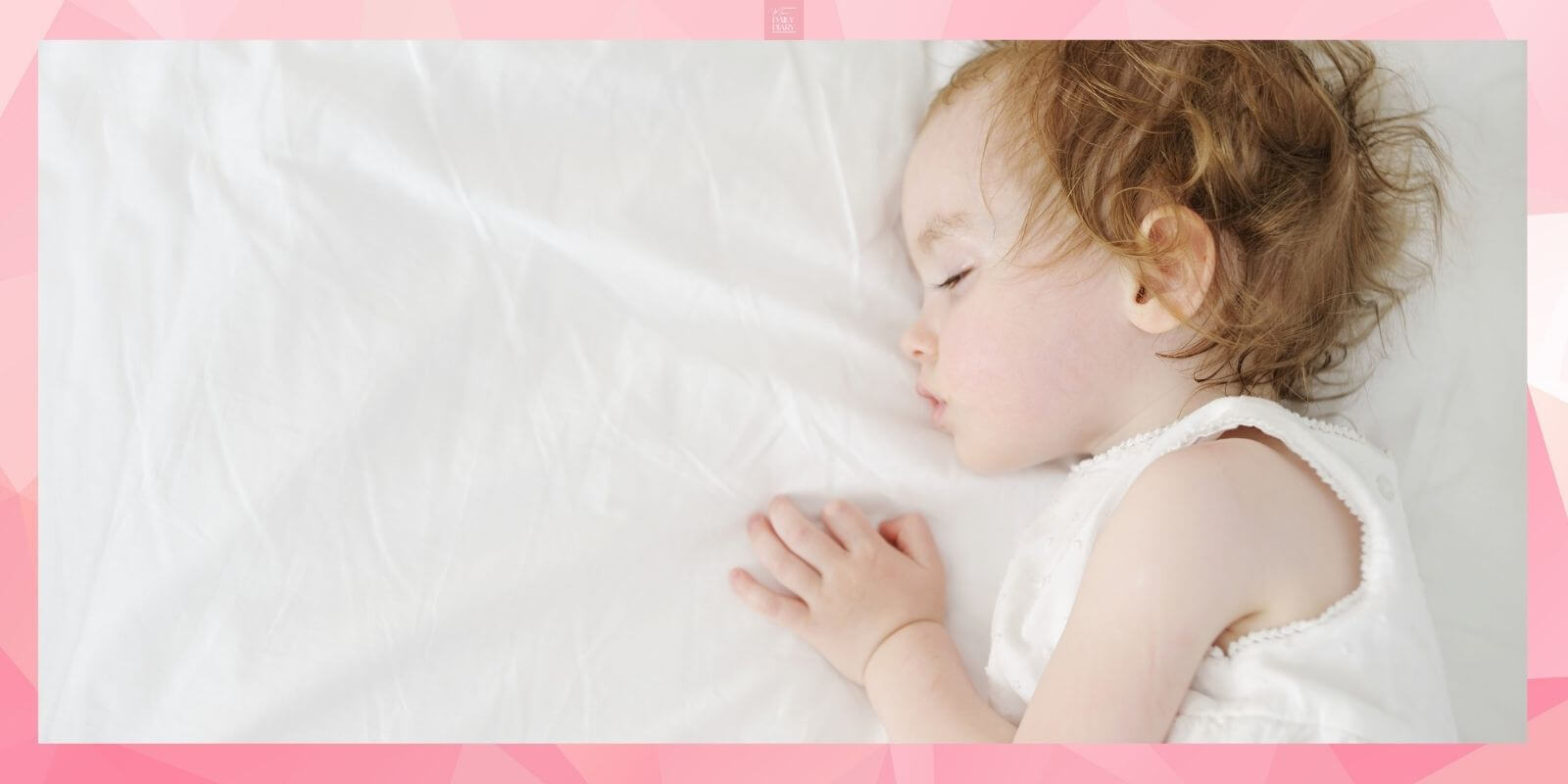
At 11 months, your baby still needs about 14 hours of sleep every day. At this stage, many babies will transition from two to a single daily nap.
And some may even go through a sleep regression fighting the daily naps altogether.
This can be especially hard on parents since we’re used to getting things done while the baby sleeps. And while switching to one nap a day is something you’ll just have to accept and learn to work with, if your baby refuses to sleep during the day this may be due to a sleep regression caused by teething, growing spurt, or even a new milestone.
If this is the case, remember that this is a temporary event. Try to stick to your usual routine as much as possible. Your little one still needs their daily rest and if you give in now it would be harder to go back to your schedule later on.
11-month baby food
Your baby’s appetite may not be what it used to be. If this happens, this is usually because:
- Their growing rates have slowed down significantly (which is perfectly normal at this stage).
- They are distracted by all the things they see and prefer to explore instead of to sit still and eat.
Luckily, there are plenty of options for 11-month baby food, so if they don’t seem to be interested, try to appeal to their curiosity.
One way is to pull the high chair by the dining table and eat together as a family. Let them see that everyone else is eating too.
You can also offer them different finger foods and arrange them on their plate. If you’re still not comfortable with offering finger foods, check out Yummy Toddler Food’s master list for everything you need to know including how to serve them.
11 months old feeding schedule
At 11 months in your baby development, your little one will usually need 5 feedings a day.
Here is our 11-month-old feeding schedule:
- 7:00-7:30 Breakfast. 180 ml (6 oz) of formula right after waking up
- 10:30 Morning snack. Cereal, diced fruit, fruit porridge, or yogurt
- 1:00 Lunch. Mostly what we’re having but well mashed with the fork. If our meal is not suitable she’s having some kind of store-bought pureed meal with meat or egg.
- 5:00 Afternoon snack. Biscuits, yogurt, cheese, diced fruit or veggies, sometimes some homemade juice.
- 7:30-8:00 Dinner. Sometimes a bit of our dinner if she really likes it. 210 ml (7 oz) of formula just before going to sleep.
Motor skills
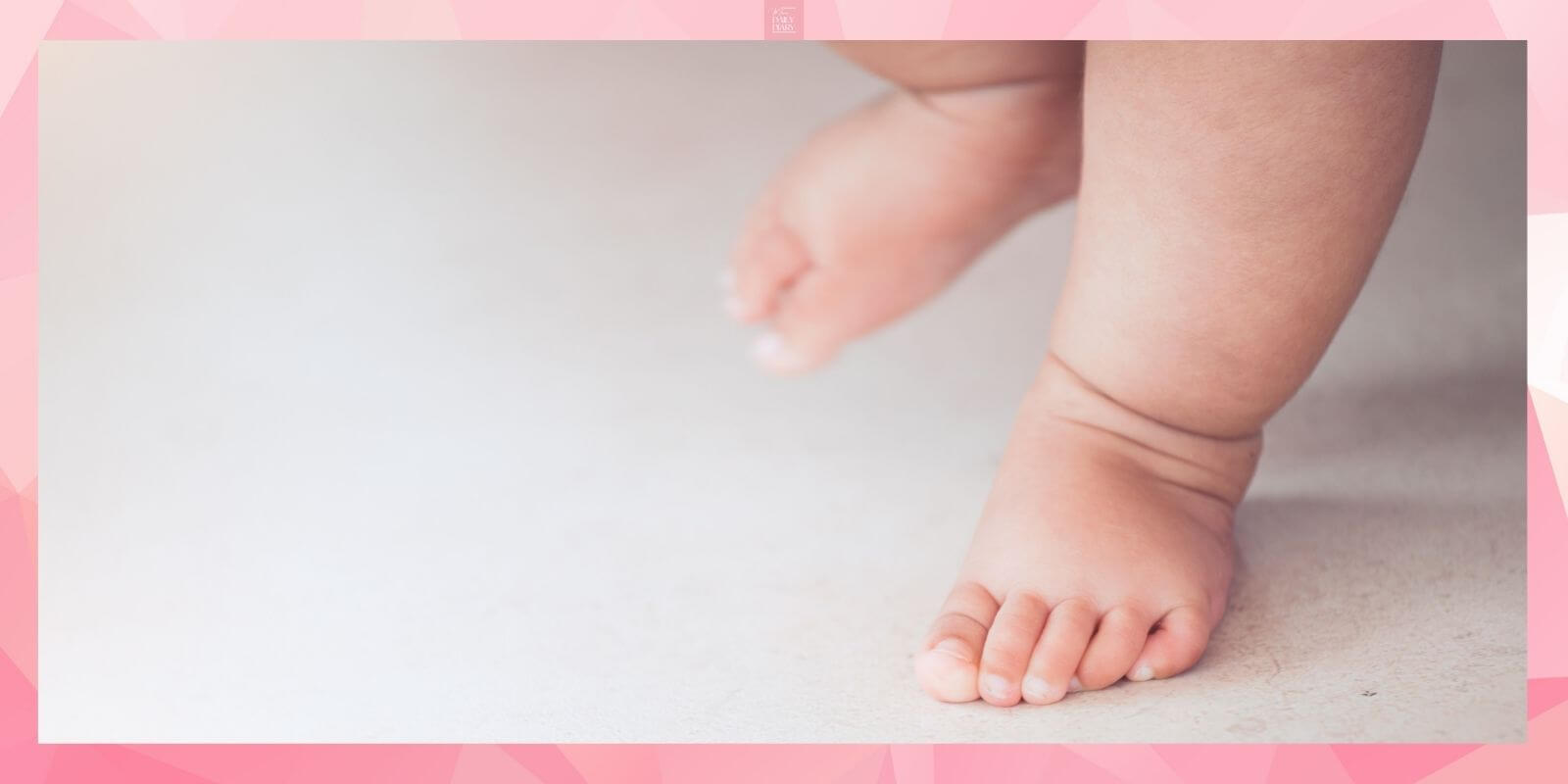
Walking is by far the most exciting milestone that parents are expecting from their 11 months baby development. And while some babies start walking as early as the 9-month mark, most babies don’t really start walking until they are about 13.5 months old.
So if your baby is not walking yet, don’t worry about it. What you should be worried about is if your baby is not standing up on its own. If this is the case, you may want to discuss this with your baby’s healthcare provider.
If you still want to help your baby gain confidence with walking, try walking around by holding them by the hand. This is by far the easiest and most natural way to encourage your little one to walk.
Still, keep in mind that it can also cause you some serious back pain. That’s why some parents prefer to use a baby walking harness.
Personally, however, I believe that the temporary back pain is worth it because the child feels a lot more comfortable holding your hand. Plus, walking hand in hand is a habit that will be very useful with a toddler, even when they are completely stable on their own two feet.
Separation anxiety
Your 11-month-old is surely showing preferences now. They have their favorite toys, foods, maybe even their favorite parent. And this newfound awareness often leads to the development of separation anxiety.
Separation anxiety is more pronounced in babies aged 10 to 18 months, although it may appear anytime between 6 months and 3 years. In essence, the baby now realizes exactly how dependent they are on you and starts to feel uneasy when you’re not around.
At this point, many parents feel guilty when they have to leave the baby for a while. What you need to remember, however, is that this is a perfectly natural stage in your 11-month baby development. So instead of stressing out, here are a few things that can help you in the long run.
- Practice leaving for a while. Leave your baby with someone you know for a few minutes at a time. Make sure they see you leave and come back. Eventually, they will understand that you leaving is just temporary.
- Talk to them about it. Don’t just assume your baby is too young to understand. Babies this age are incredibly quick learners. Tell them you’ll be gone only for a short while or about what you’re going to do together when you come back.
- Always say Goodbye. Before you leave tell them Goodbye, give them a kiss, or wave them happily. Babies are good at picking up your mood. If you’re confident and smiling, they are less likely to get tense.
11 months old baby activities
Choosing the right activities is the best way to support your 11 months baby development. Here are a few you could try.
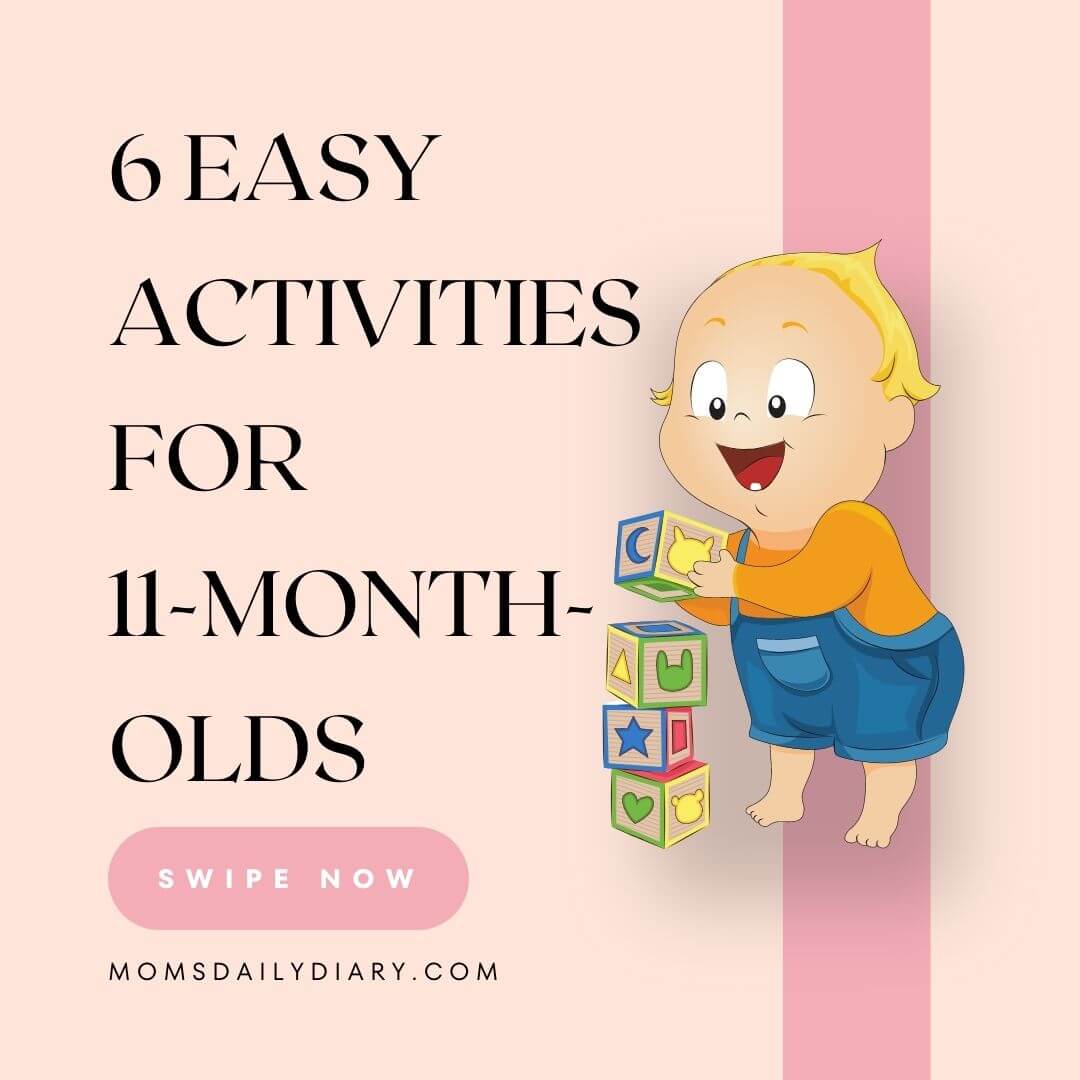
Pull and push toys
Some experts suggest that using baby walkers is not safe for your little one and can result in serious injuries. A safe alternative to encourage your baby to walk with or without support, however, are push/pull toys.
When choosing a toy for your baby make sure there are no sharp edges because it’s not unusual for the baby to fall over the toy. Also, avoid toys with long thin cords. With this said, here are a few awesome push/pull toys you can find on Amazon.
Take out the pantry
You’ve probably noticed that your little one finds pretty much everything exciting. And while keeping everything out of their mouth may be exhausting at times, there is a plus side to the situation.
You won’t need fancy new toys for a while!
Instead, empty your pantry of all plastic or metal cups, cans, containers (presumably they don’t have any sharp edges) and hand them to your little one. Don’t forget the wooden spoons, they go perfectly with metal baking trays.
Other materials that will fascinate your baby include empty plastic bottles, paper tubes from kitchen rolls, egg cartons, carton boxes of all shapes and sizes. Pretty much everything that is unshatterable and big enough so it doesn’t fit in their mouth.
High chair sensory bags
If your baby likes to stay in their high chair you may create different sensory bags and tape them to their table. You’ll need:
- Zip lock bags. Or any harder plastic bag. I’m usually using freezer bags.
- Strong scotch tape
- Beans, rice, water beads, or whatever else you have at hand.
Put the filler in the bag. In some cases, you may want to add a cup of water too, so the items inside move freely.
Zip the bag tight, fold the edge, and secure it once again with the scotch tape.
Then tape the whole bag to the high chair table from all sides.
Keep in mind, however, that although they are hardly likely to tape the bag off, their little nails may pierce it if they are sharp enough. And while the zipped bag is completely safe, the fillers may represent a choking hazard.
In other words, keep a close eye on them whenever you offer sensory bags to your child.
Free the animals
Since I’ve already mentioned using scotch tape, I want to share one of our favorite 11 months old baby activities. Free the animals is a great exercise for your baby’s fine motor development and pincer grasp.
If you have small (but not chokably small) animal figures you may tape them to a well-adhesive surface. For 11-month-olds use a single stipe of scotch across the animal. You can use a table, counter, low cabinet, or whatever you have at your convenience.
My personal favorite is the side of the fridge.
Show your little one how to take off the animals and then let them do it by themselves. However, make sure you stay by their side to ensure that what inevitably ends up in their mouth is the animals and not the tape.
How old are you?
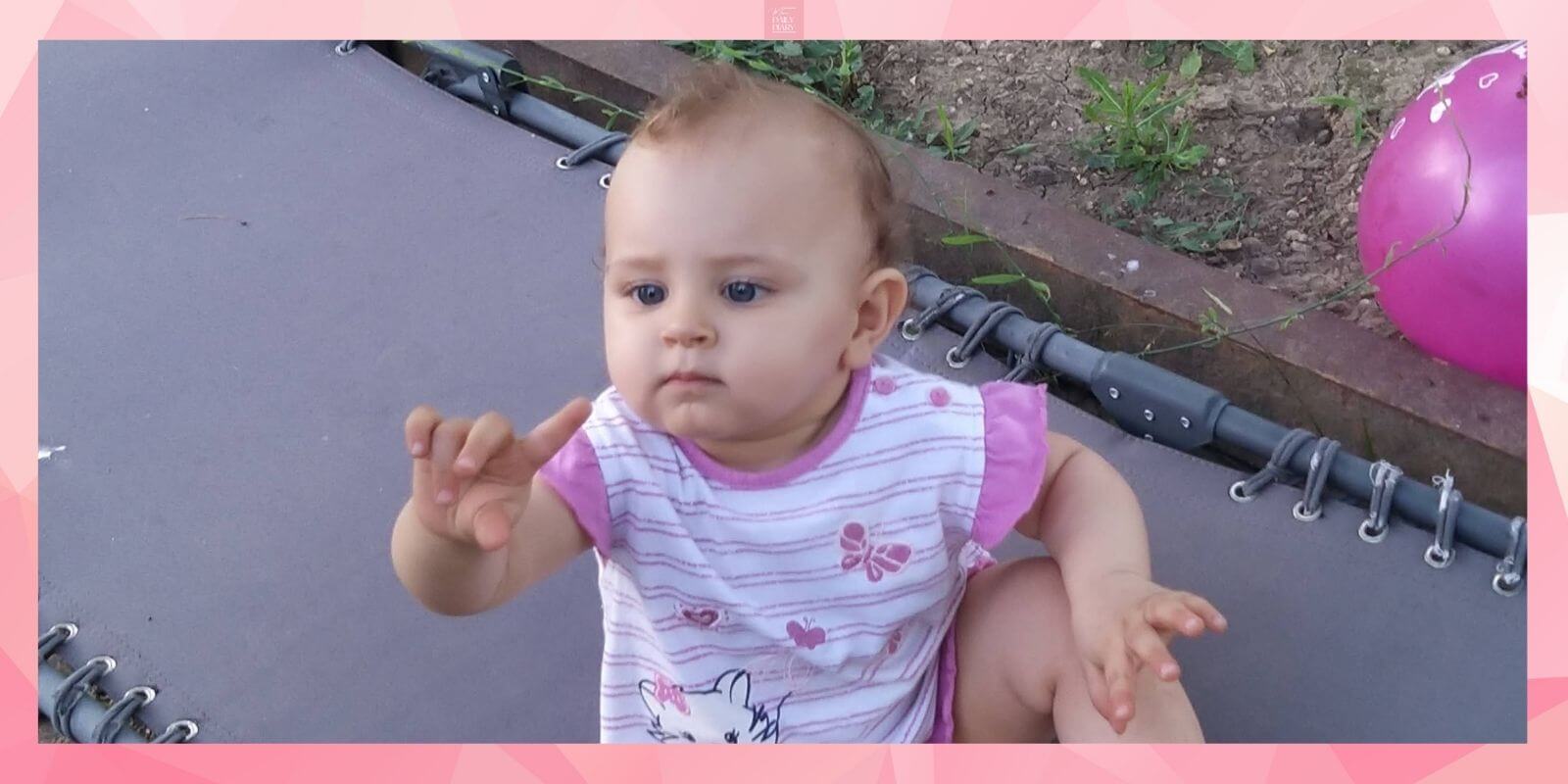
If you want to teach your baby this cool trick you might want to start right now. Here’s the deal.
Ask your baby “How old are you?” and then show them how to point with one finger. You can take things even further by asking them “How big are you gonna get?” and teach them to lift their hands high above their head.
I did this with my oldest and for a month she would do it with me but absolutely refused to do it on her own when I asked her.
Then the first time she actually did it was at her birthday party and everyone got so ecstatic.
Just let them explore
Your baby’s curiosity is running on full drive right now. You can satisfy it by letting them explore on their own.
It could be in your living room or at the local park, any place may be full of things to see, touch, and explore. As long as it is under your supervision, of course.
First birthday party checklist
Was I talking about 11 months baby development? Then what’s with the birthday checklist.
I’ll tell you. If you want to have enough time to prepare for your baby’s special day, you should start now.
Otherwise, you risk overwhelming yourself to the point where you won’t even be able to enjoy it. And while I won’t go into too many details, here are the major things you need to plan.
- Pick a theme. Pinterest is a great source of inspiration for 1st birthday party themes.
- Set a budget. Will you prepare things yourself or will you order it? Are you booking a venue or you’ll be hosting the party?
- Create a guest list. It doesn’t matter if you’ll be with your closest family or throw a huge gathering. Having a guest list will help you plan out the menu so there is no food going to waste or possibly not enough.
- Talk to the guest about the gifts. No, this is not tacky or being picky. Help them choose gifts by giving them guidelines on things you need or your baby will like. For example, tell them your baby loves books, or wooden toys, or that they already have too many loud and flashy toys so they are not recommended.
- Book a first birthday photoshoot. This is definitely something you don’t want to miss out on. Smash cake photoshoots are tons of fun for the baby because they get to eat cake, get dirty, and then take a bath. And that’s all in front of the camera. If you cannot afford to book a session with a professional photographer, the guys from Expert Photography have a detailed guide for best results at home.
11-month baby milestones
Meeting new milestones is exciting for every parent. However, before you continue with the post, keep in mind that babies develop at their own pace. With this in mind, let’s check what 11-month baby milestones you can look forward to.
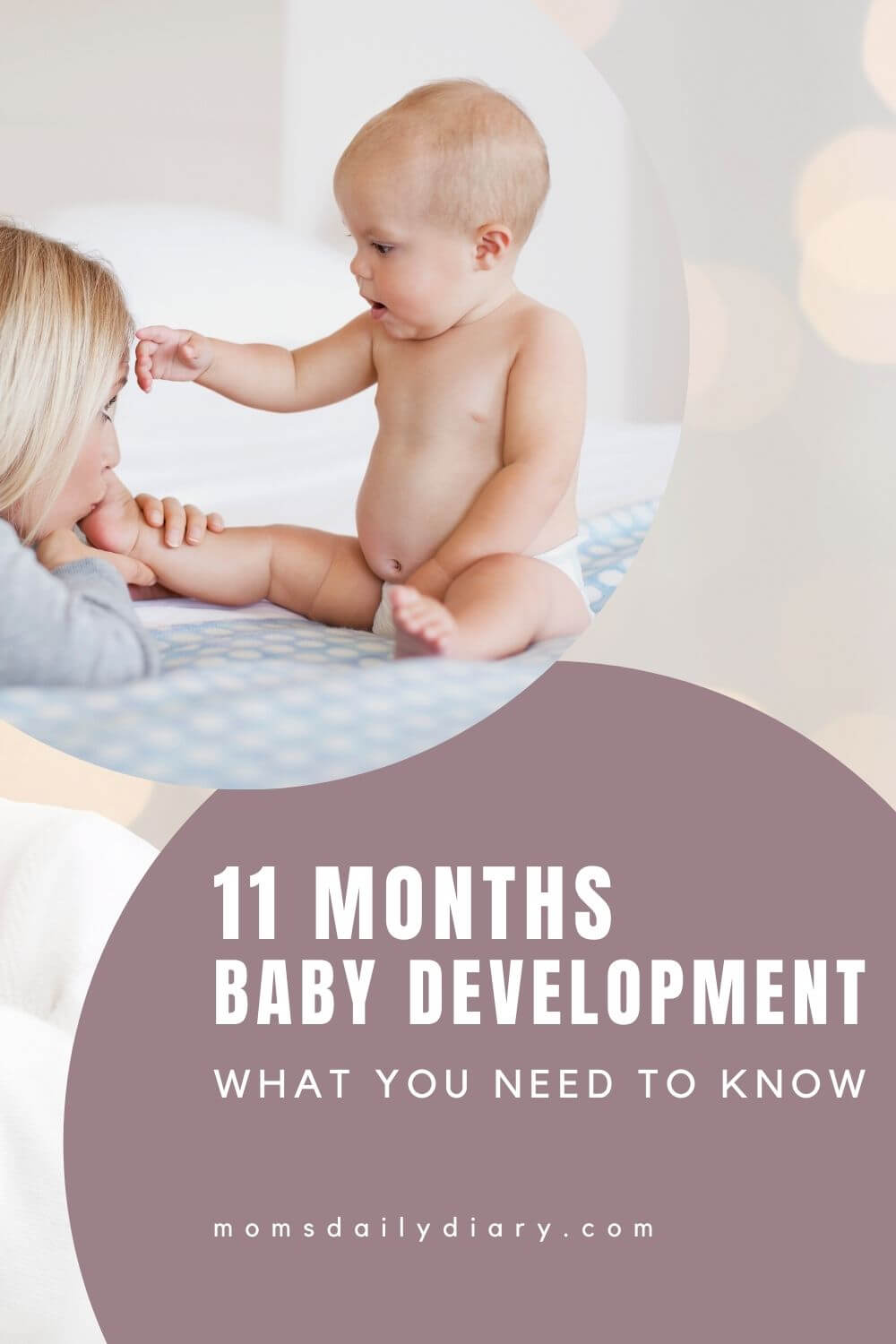
Social
- Responds with smiles and babbling when you talk to them.
- Waves hello and goodbye.
- Points at items of interest.
- Shakes their head for no.
Physical
- Pulls up to a standing position alone or by holding on to their surroundings.
- Stands up unsupported.
- Cruises by holding to the furniture.
- Walks when you hold them by the hand.
- May walk on their own without support.
- Enjoys throwing objects around.
Verbal
- Babbles a lot.
- Says simple words like mama, dada, or even no, hi, bye, etc.
- Has their unique words for common items like their bottle, pacifier, food, etc.
- Knows the names of common items or people around them (looks at them when you ask “Where is…”).
Cognitive
- Follows simple directions (“go to daddy”, “take the ball”, etc.).
- May be showing separation anxiety.
- Shows preferences in foods, activities, and people.
Bonus: 11 months old baby quotes
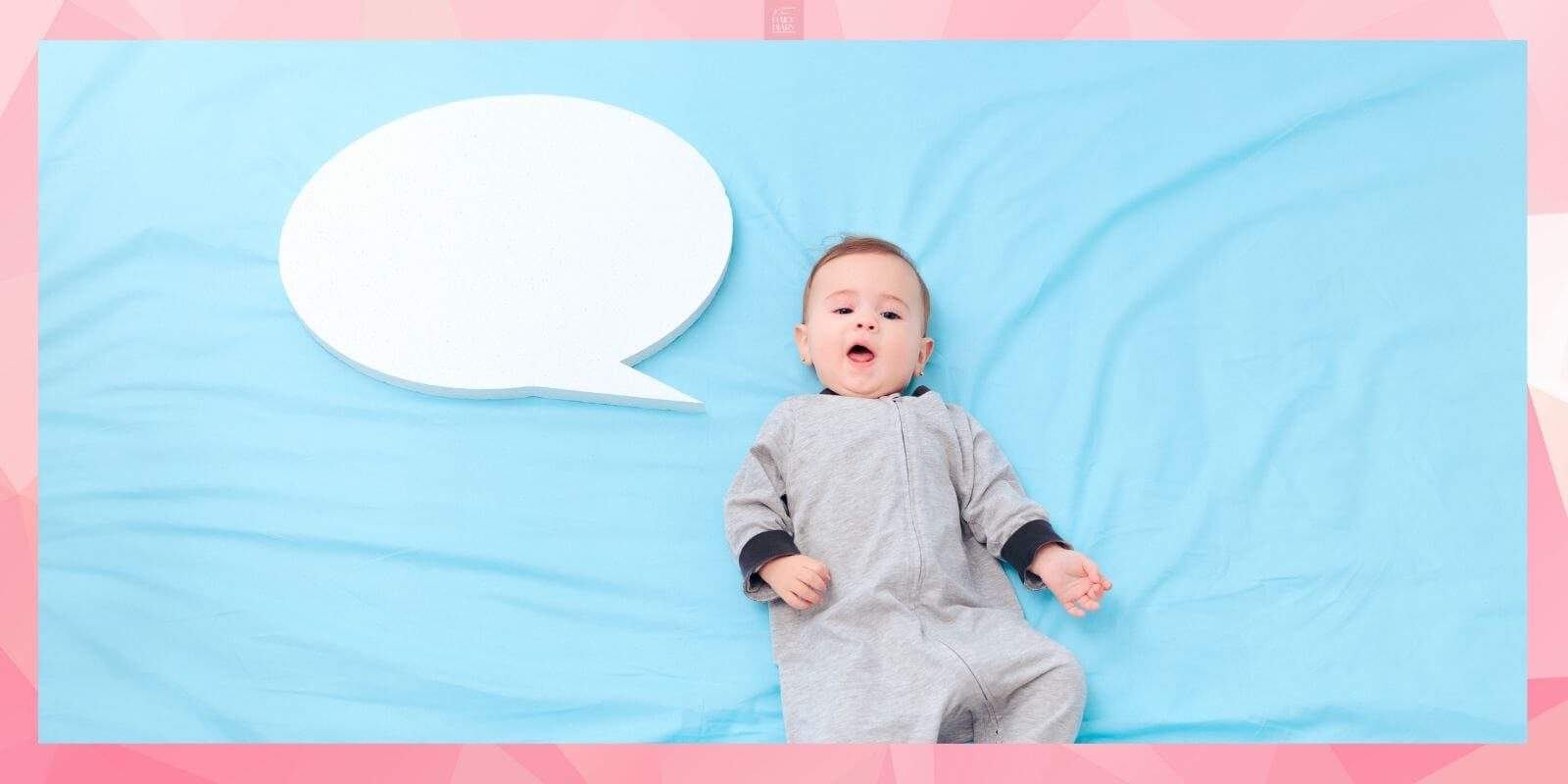
To finish things with a bit of a laugh, I found these awesome ideas of what would 11-month-olds say if they were writing in support forums.
- HELP! Mom is sleeping throughout the night!
- I am not allowed to tear off the wallpapers.
- How do I sneak up on the cat?
- They are trying to put me to bed at 9PM. How do you fight this?
- A vacation abroad. Should I take the parents with me?
- Has anyone tasted the nappy cream? I still haven’t got a chance to.
- What should my mom be able to do at 33 years?
- How to fall asleep without releasing the breast?
- Mom’s nose is not elastic. Is that normal?
- What to eat for purple poop?
- Sweetheart, baby, pumpkin, buddy, bunny… How to find out our real name?
- Poll: Which indoor plants taste better?
- The new nappies are making my butt look fat. Any recommendations?
